Edition: 11 to 22 March 2024
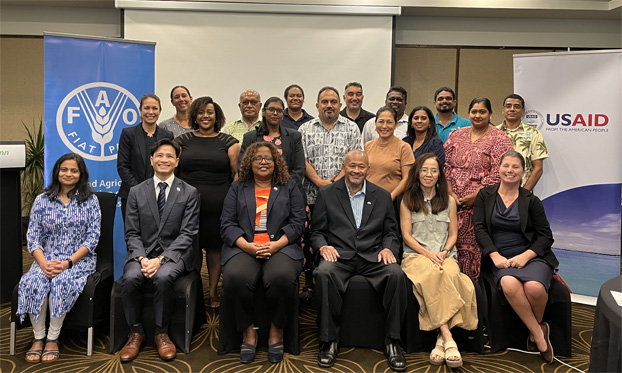 ©FAO/Ashitesh Prasad | FIJI AND ASIA AND THE PACIFIC Fiji kicks off a new Global Health Security Program project to strengthen animal health systems The Fijian government, in collaboration with FAO and United States Agency for International Development (USAID), officially launched the Global Health Security Program (GHSP) for Fiji on 13-14 March. This project strengthens animal health systems, reduces the risks of emerging zoonotic diseases and addresses health threats in Fiji and other Pacific countries through a comprehensive One Health approach. Fiji is one of the first countries in the Pacific to operationalize the FAO-USAID GHSP project, contributing to increasing the region’s preparedness and resilience to health threats. Read the news here. |
 ©FAO Papua New Guinea | PAPUA NEW GUINEA AND ASIA AND THE PACIFIC Papua New Guinea holds project consultation workshop for the Global Health Security Program The Government of Papua New Guinea, along with the FAO, World Health Organization (WHO), and supported by USAID, held a technical workshop for GHSP on 19-20 March. This project aims to strengthen animal and public health systems, mitigate the risks of future pandemics and address health threats across Papua New Guinea through an integrated One Health approach. This collaborative effort marks a significant step towards Papua New Guinea’s healthier and safer future. Read the news here. |
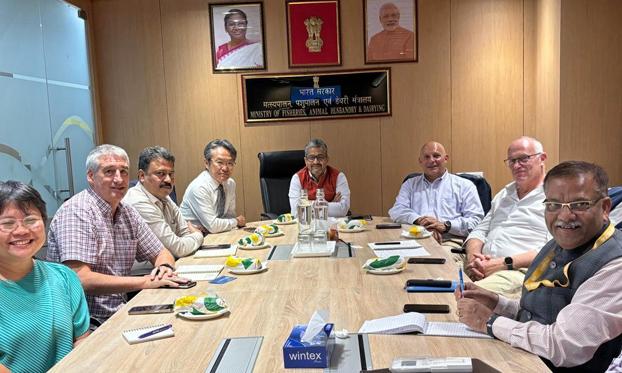 ©FAO India | INDIA AND ASIA AND THE PACIFIC
Enhancing collaboration and strategy for animal health sector in India |
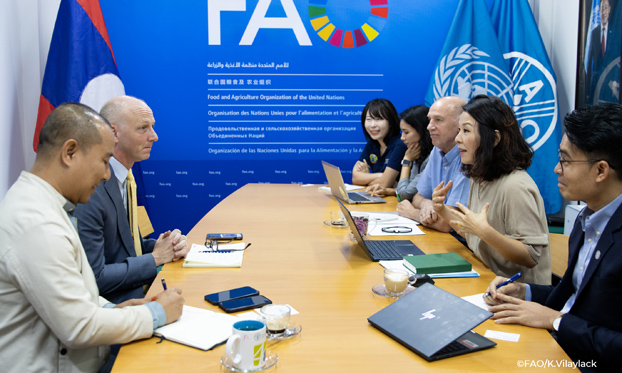 ©FAO/Vilaylack Khounvisith | LAO PEOPLE’S DEMOCRATIC REPUBLIC Collaborating with USAID for the GHSP in Lao PDR FAO Representative in Lao People’s Democratic Republic, Kyung-Mee Kim, hosted USAID Lao People’s Democratic Republic Country Representative Michael Ronning on 20 March 2024 in a meeting facilitated by FAO ECTAD. The courtesy visit was organized to strengthen the long-standing collaboration between USAID and FAO and work together to implement the GHSP. This project aims to enhance the multidisciplinary workforce and institutional capacity to address animal and public health threats. |
Learn more about our work on partnerships here.
| |
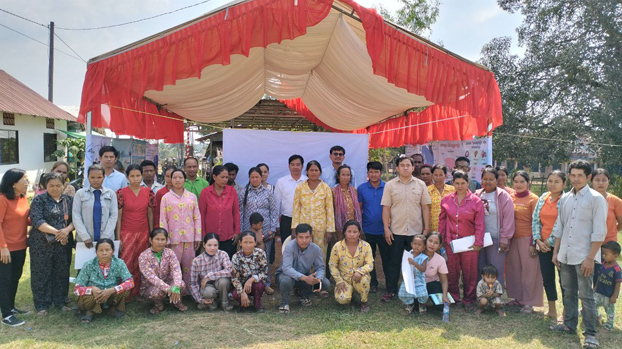 ©FAO Cambodia | CAMBODIA Equipping farmers with correct knowledge on African swine fever, one village at a time
Between August 2023 and February 2024, African swine fever (ASF) community forums in Cambodia, with support from the USAID’s Bureau for Humanitarian Assistance (BHA), engaged 4 361 farmers and village animal health workers from 100 villages across 10 provinces. These forums provided a platform for farmers and village animal health workers to ask questions and learn about preventing and controlling ASF, including early detection and reporting. Guidance on recovering from ASF outbreaks was also provided. The forums were organized in collaboration with the General Directorate of Animal Health and Production (GDAHP), provincial veterinarians, district veterinarians, and local authorities. In 2021 alone, the forum was initiated, covering 50 villages across five provinces facing with ASF outbreaks, and benefiting 2 116 farmers. |
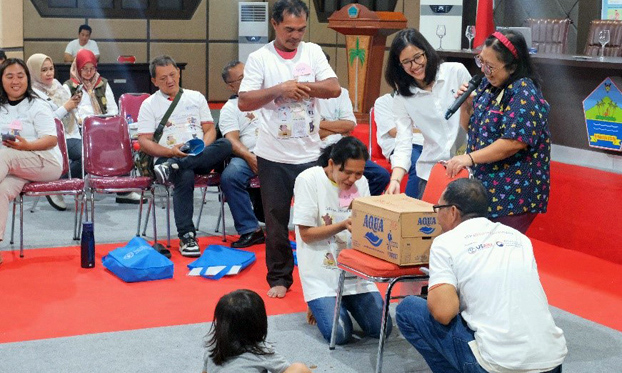 ©FAO/Alia Dwirahmani | INDONESIA Smallholder farmers in North Sulawesi agree to implement the CABI programme FAO and Ministry of Agriculture (MoA), with support from the Ministry of Agriculture, Food and Rural Affairs (MAFRA) of the Republic of Korea (ROK), launched the community African swine fever biosecurity intervention (CABI) programme in Indonesia from 19 to 21 March 2024, with the pilot project starting in North Sulawesi province. The Government of Indonesia has selected Pinabetengan, Paslaten Satu and Tiwoho villages in North Sulawesi as pilot locations. High-ranking authorities and farmers agreed and committed to participating in the CABI initiative as the chosen pilot locations by signing the certificate board and integrity pact. The event continues with biosecurity training for 80 smallholder farmers from the three villages. This training aims to give farmers basic knowledge of biosecurity and guidance on using the equipment provided by the CABI programme. Read the news here. |
Learn more about our work on ASF here.
| |
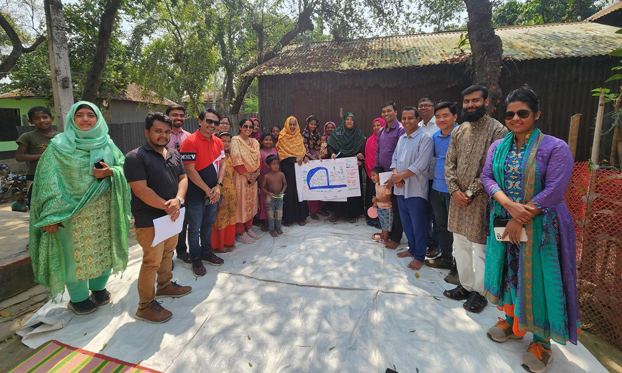 ©FAO/Humayra Nowrin | BANGLADESH Trainers trained on Upazila-to-Community training programme
FAO organized a six-day training of the trainers (TOT) programme from 12 to 17 March at Savar, Dhaka for the Upazila livestock officers and veterinary surgeons from Department of Livestock Services (DLS) of the Ministry of Fisheries and Livestock, funded by the USAID. The training was designed to improve the participants’ knowledge on poultry health and management, and develop skills of potential trainers of DLS in using the participatory approach-based Upazila-to-Community (U2C) training programme. New trainer pool from DLS is required to receive this training program as part of institutionalizing the early developed U2C initiative in DLS for participatory disease surveillance, promotion of responsible antimicrobial use and outreach to farmers for better farm management with improved biosecurity and vaccination practices. |
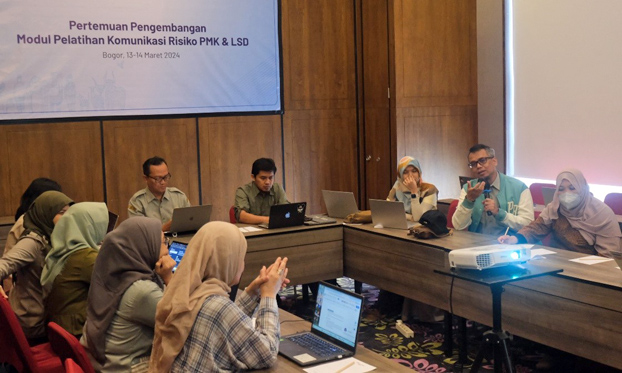 ©FAO/Alia Dwirahmani | INDONESIA Developing risk communication modules on foot-and-mouth disease and lumpy skin disease FAO and MoA, with support from the Australian Government, conducted a meeting on foot-and-mouth disease (FMD) and lumpy skin disease (LSD) risk communication module development for training of trainers in Bogor from 13 to 14 March 2024. Twenty-one representatives from the MoA and the Jalin Foundation participated in the meeting. During the two-day meeting, all participants reviewed the draft communication modules which included risk perception and recommended behavior for FMD and LSD prevention, basic concepts and principles of FMD and LSD risk communication, facilitation skills, interpersonal communication skills, understanding key messages, communication skills for facing rejection and other chapters. |
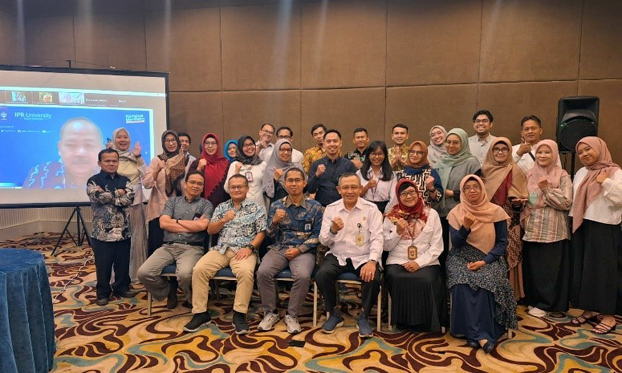 ©FAO/Ahmad Gozali | INDONESIA Developing teacher training modules for zoonoses curriculum in schools’ programme FAO and MoA, with support from USAID, reviewed five teachers’ training modules for Sekolah Penggerak (school movers) programme, an independent learning curriculum on zoonoses education for primary and secondary schools, from 13 to 15 March 2024. The meeting was opened by the Director of Veterinary Public Health MoA and attended by the representatives from Balai Besar Guru Penggerak (BBGP) West Java province, academia, as well as representatives from elementary and secondary school in Bandung. Experts from the MoA and BBGP reviewed the modules' adequacy as teaching material to train the teacher and headmaster in improving their competency on teaching the new zoonoses curriculum. |
Learn more about our work on capacity development here.
| |
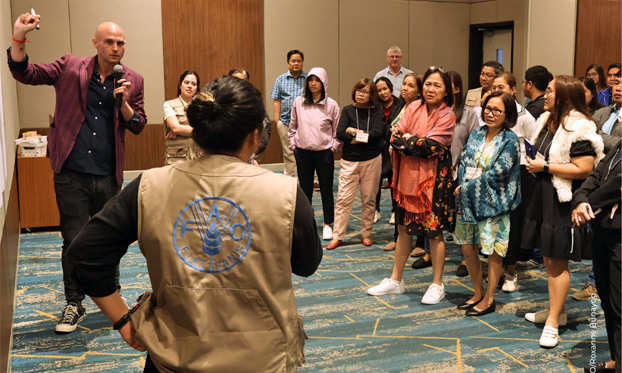 ©FAO/Roxanne Bunayog | THE PHILIPPINES AND ASIA AND THE PACIFIC Strengthening national animal health laboratory system in the Philippines Representatives from public and private laboratories actively participated in the workshop on laboratory assessments and roadmap development organized by FAO and USAID, in collaboration with the Department of Agriculture - Bureau of Animal Industry (DA BAI) from 12 to 15 March 2024. The workshop began with discussions on the Laboratory Mapping Tool (LMT) core and safety modules, followed by interactive activities on the LMT questionnaire template. Subsequent sessions focused on mapping the local laboratory network and identifying needs for capacity enhancement. This process facilitates international partners in understanding priority needs and developing targeted action plans. In total, 58 participants attended the workshop.
|
| Learn more about our work on capacity development of laboratory here. | |
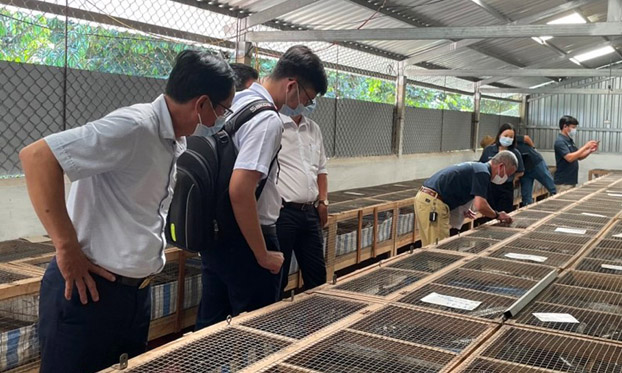 ©FAO/Nguyen Cuong | VIET NAM FAO and Viet Nam conclude wildlife facilities assessment for zoonotic risks
FAO and the Ministry of Agriculture and Rural Development (MARD), with support from United Nations Office on Drugs and Crime (UNODC) and European Union (EU) successfully concluded a five-month survey of captive wildlife facilities as part of the Safety across Asia for the Global Environment (SAFE) project, aiming to establish baselines for management and biosecurity practices. The team collectively assessed 44 locations, including captive wildlife facilities, rescue centers, zoos, restaurants and markets. Find the key findings in the article here. |
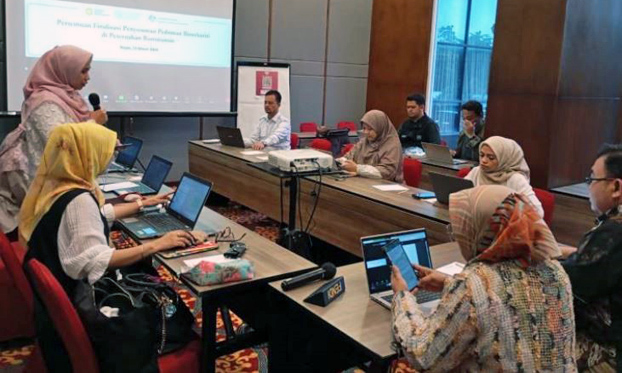 ©FAO/Saskia Soedarjo | INDONESIA Finalization of ruminant biosecurity guidelines for foot-and-mouth disease and lumpy skin disease prevention
FAO and MoA, with the support of the Australian Government, held a meeting to develop an enterprise biosecurity plan for a ruminant farm based on a site-specific risk assessment from 13 to 15 March 2024. During the meeting, all participants from MoA and academia, reviewed the large and small ruminant biosecurity guidelines and gave final inputs. As a follow up, a meeting on the development of biosecurity for ruminant farm modules will take place at the end of March 2024. |
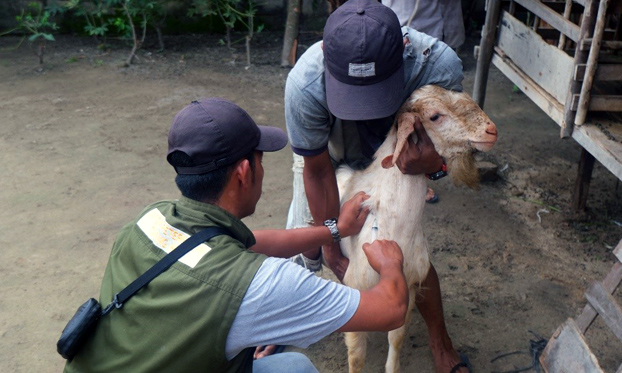 ©FAO/Alia Dwirahmani | INDONESIA Accelerating vaccination to prevent the re-emergence of foot-and-mouth disease outbreaks
FAO and MoA, with support from the Australian Government, has accelerated the vaccination programme against foot-and-mouth disease (FMD) in eight districts across five provinces. A total of 58 448 livestock including cattle, dairy cows, goats and sheep have been vaccinated through this vaccination programme which ran from 28 February to 10 March 2024. Furthermore, approximately 25 000 farmers received awareness on risk communication through information, education and communication dissemination. The vaccination campaign was expedited before Ramadan to preempt potential losses from increased FMD cases during the holiday season. Read the news here. |
Learn more about our work on risk reduction along the value chain here.
| |
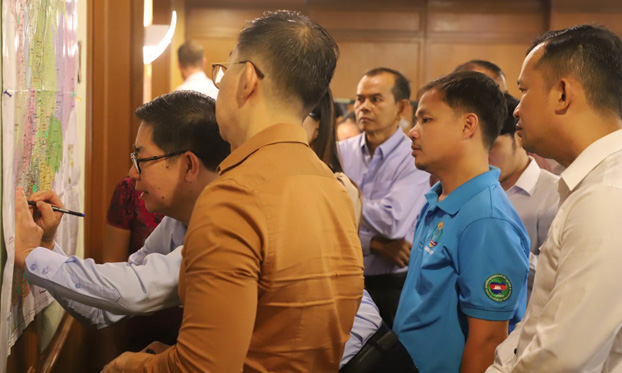 ©FAO/Siheng Ngon | CAMBODIA AND ASIA AND THE PACIFIC Avian influenza surveillance review workshop As part of ongoing efforts to prevent and control the spread of avian influenza in Cambodia, the General Directorate of Animal Health and Production (GDAHP) and FAO organized a workshop on 19 March 2024, to review avian influenza surveillance in the country. At the workshop, participants reviewed the scope and extent of avian influenza surveillance programmes that are currently being implemented. Laboratory and epidemiology findings were also reviewed along with the development of specific recommendations to improve surveillance and monitoring of avian influenza viruses, while ensuring that different sector and partner actions are complementary. The workshop was funded by USAID.
|
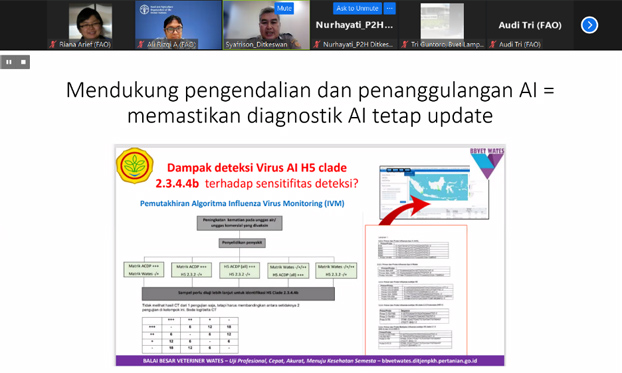 ©FAO/Riana Arief | INDONESIA Coordination meeting on strengthening influenza virus surveillance and diagnostics FAO and MoA, supported by USAID, held an online coordination meeting on strengthening influenza virus surveillance and diagnostics on 21 March 2024. Participants mapped out avian influenza and swine influenza surveillance that had been carried out by Disease Investigation Center (DIC) as well as surveillance plans for the next one year. They also identified the needs and challenges in carrying out the surveillance. FAO support under the GHSP project for detecting avian influenza clade 2.3.4.4b in the coming year will focus on strengthening surveillance in domestic birds, migratory wild birds and swine, align with the global strategy. The meeting concluded with a follow-up note to improve communication and coordination with animal health centres to improve reporting and sampling, as well as to create a special session on Influenza Virus Monitoring (IVM) to discuss Newcastle disease and other major poultry diseases.
|
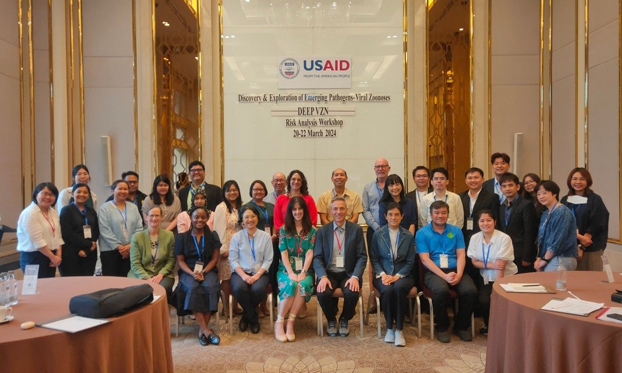 ©FHI360/Chatchawal Sa-nguansilp | ASIA AND THE PACIFIC Risk analysis workshop for the discovery and exploration of emerging pathogens FAO participated in a risk analysis workshop for the discovery and exploration of emerging pathogens - viral zoonoses (DEEP VZN), with support from the USAID. Contribution to the discussion included the selection of field sampling sites for the detection of known viruses from three priority viral families (Paramyxoviridae, Coronaviridae and Filoviridae) in humans, animals and the environment. This result may warrant consideration for enhanced surveillance due to higher risk human-animal interfaces and other risk factors for zoonotic spillover and outbreaks.
|
| Learn more about our work on surveillance here. | |
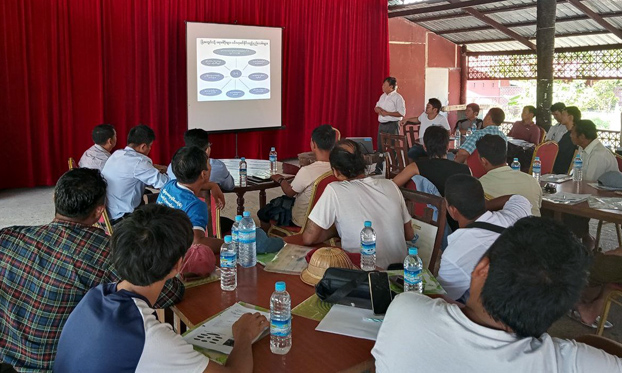 ©fao/Yan Naing Soe | MYANMAR Biosecurity, good animal husbandry practices and antimicrobial resistance workshop conducted FAO conducted a workshop on biosecurity, good animal husbandry practices and antimicrobial resistance with cooperation from the Myanmar Livestock Federation. The workshop was held in Nyaungdon Township, Ayeyarwady Region on 19 March 2024 with financial support from USAID. The participants showed keen interest in the subjects discussed and acknowledged that it might be difficult to apply some recommended practices, considering their farm size, location and open house farming system. FAO plans to organize similar workshops in other states and regions to increase adaption of biosecurity and good practices among farmers. |
 ©fao/Gunawan Utomo | INONESIA Farmer Field School activity in East Lampung district FAO and MoA, together with FAO headquarters, held a meeting to disseminate the result of baseline data assessment and Farmer Field School (FFS) activity in East Lampung district from 14 to 15 March 2024. This meeting aimed to deliver the pilot farmers’ farm status toward antibiotic use and biosecurity practices based on the survey in data baseline and provide recommendations to ensure the quality of FFS learning activities. The discussion focused on the assessment result of the pilot farm profile, the status of implementation of infection prevention and control (IPC) and antimicrobial stewardship (AMS) on pilot farms, and the identified strategy to reduce antimicrobial use (AMU) in pilot farms. The discussion yielded three recommendations: expand farmer participation in FFS components, increase successful implementation and enhance farmer-veterinary officer collaboration for disease management and AMU . |
Learn more about our work on AMR here.
| |
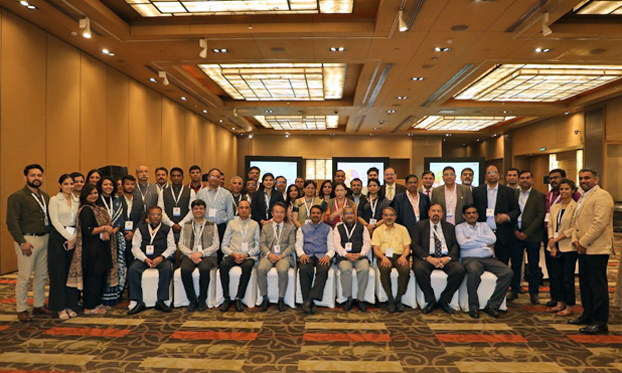 ©FAO/Dipesh Solanki | INDIA AND ASIA AND THE PACIFIC Multisectoral workshop on animal health: advancing collaborative disease prevention and control with One Health approach FAO organized a one-day multisectoral workshop on animal health with a One Health approach on 14 March 2024 in Delhi. The workshop aimed to serve the twin objective of fostering collaboration among experts from diverse sectors to develop and implement integrated projects; and mainstream the private sector in emergency preparedness for livestock and poultry enterprises to promote the well-being of humans, animals, wildlife and environment in India. The event also conceptualized crucial roadmaps for the future, and concluded with renewed commitment to collaborative efforts across sectors to enhance animal health and public health outcomes in India. The meeting welcomed an esteemed gathering of over 60 participants from the animal, human, environment and wildlife sectors, including donor agency, USAID, and private sectors.
|
| Learn more about our work on One Health here. | |
